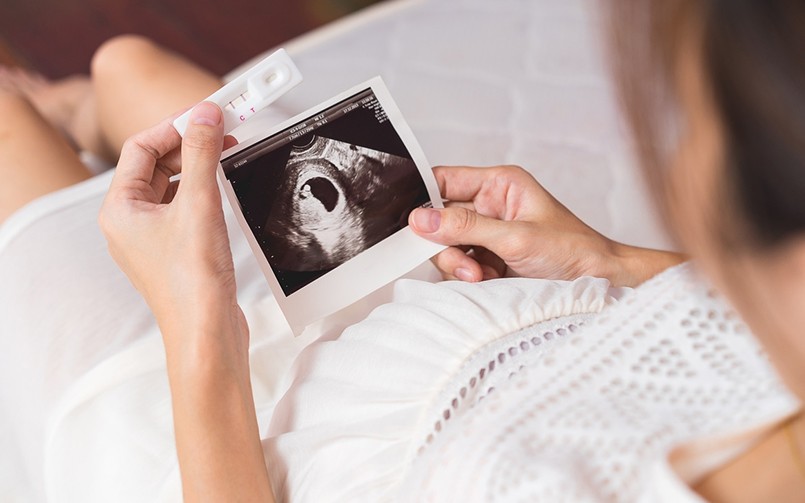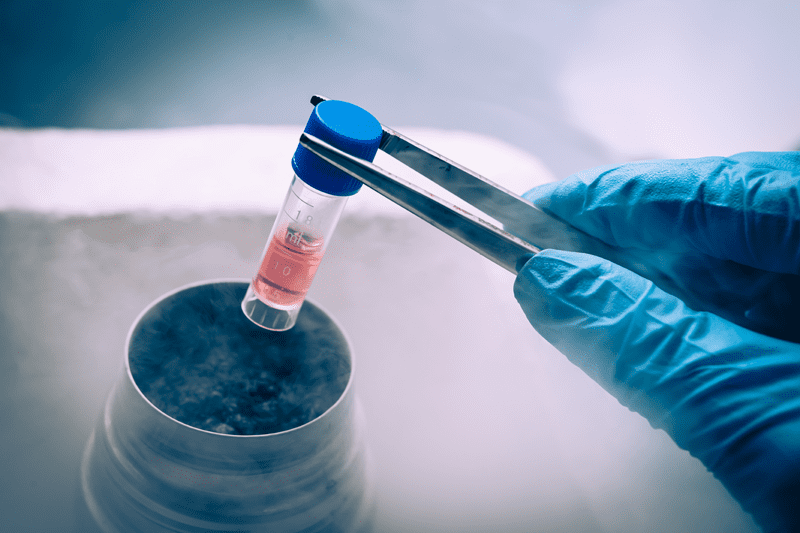Bleeding after IVF

In vitro fertilization is a very serious and important step in the life of a married couple. This procedure helps them to make their long-awaited dream come true – to become parents. IVF includes many stages that both men and women go through.
But the stage after embryo replanting and further support of pregnancy is one of the most important. Because, a long way has come and now you need to save the fetus until delivery.
Actually, at this stage, a woman gives a new life. At this time, she begins to observe and listen to all changes in her body, expecting positive signs that she is pregnant.
She begins to experience symptoms of pregnancy, feels the development of the baby in the uterus. She develops pregnancy symptoms, nausea, fatigue, changes in appetite, exacerbated taste and smell, new vaginal discharge, but vaginal bleeding may also appear at the beginning. And today we will talk about bleeding after in vitro fertilization.
Let’s briefly analyze what happens in the period after embryo replanting
Once in the uterine cavity, the embryo prepares for implantation into the uterus. It is attached to the wall with the help of microvilli and begins to develop. It produces large amounts of human chorionic gonadotropin, which is a major pregnancy marker. Actually, it determines whether the in vitro fertilization procedure was successful or not.
During this period, a woman may have vaginal discharge. The characteristic of vaginal discharge is an important indicator showing the state of a woman’s reproductive health and the success of IVF. Even before laboratory results, based on the nature of the discharge, the doctor can tell how to go through the period after embryo transfer.
After the embryo transfer procedure, the doctor usually recommends wearing daily sanitary pads. It is on them that the woman will observe the nature of the discharge, in order to inform the doctor later.
Including after embryo transfer, minor spotting may appear. And then the gasket can be painted red, brown or pink. They appear approximately in the period from 7 to 12 days and last for 1-3 days. Such discharge is considered the norm.
What causes of bleeding after embryo transfer can be?
There are several reasons for bleeding after embryo transfer. They characterize the processes that occur in a woman’s body during this period.
Primarily, it may be associated with a previous controlled ovulation stimulation that was used to obtain multiple eggs. In the normal cycle, after ovulation, if fertilization does not occur, menstruation should pass. Actually, this is it, but not complete. It lasts 1-2 days, not plentiful, smearing and painless. Do not worry, it does not carry threats.
The second reason for bleeding is the transfer of the embryo into the uterine wall. In order to attach, the embryo must pass through the top layer of the endometrium with its villi. Thus, microtraumas are formed and blood is released from them.
This bleeding may be accompanied by unpleasant, uncomfortable sensations in the lower abdomen, but not painful. They appear in the form of several spots of blood or urine on the pad or underwear. They can be brown, pink, or deep red in color and can last for hours to 1 day. Their main characteristic is a scanty amount of blood and the intensity of bleeding does not change during the entire period.
Usually, the doctor warns about the possibility of such bleeding so that the woman does not worry and behaves calmly. But it is worth remembering that there may not be a bloody discharge. Very often, embryo implantation takes place without bleeding and generally any extraneous sensations. Therefore, you should not worry about the lack of such.
Other causes of bleeding after embryo transfer include:
- Stress. Including the one that a woman experiences during the IVF procedure. You need to worry less and spend more time relaxing.
- Failure to comply with medical recommendations. After the embryo transfer, the doctor gives strict recommendations, for example, a ban on hot baths. Actually, violation of this requirement can cause bleeding.
Normal bleeding is considered to occur during the first or second week after embryo transfer. Later, during pregnancy, there should be no bleeding, their appearance may indicate problems and disorders that are threatening.
What bleeding is considered threatening?
In addition to normal bloody discharge, a woman may develop those that threaten an abortion or even her life.
Characteristics of dangerous bleeding:
- The amount of blood. Profuse bleeding in a short period of time, bright pink or red.
- Pain. Bleeding is accompanied by severe and sharp stabbing pain.
- Duration. Long-term bleeding. More than 3-4 days.
- Period. Bleeding in the third and later a week after transfer can also indicate a threatening condition.
What to do in case of bleeding and which is the first aid?
If the bleeding is normal, there is no need to worry, as stress can increase it. First of all, you need to inform your fertility doctor and follow all his recommendations. During this period, you need to lead a sparing lifestyle, eliminate physical activity, stress, rest more and monitor the nature of bleeding, informing the doctor about changes.
If symptoms of dangerous bleeding appear, you need to act clearly and quickly, because such bleeding can be a sign of a miscarriage and pose a threat to a woman’s life.
In case of such occurrence, you need to do the following:
- Call an ambulance and inform your doctor.
- Do not panic. Panic increases your heart rate and therefore bleeding. It also interferes with acting adequately.
- If haemostatic medications have been prescribed, take them.
- Take a horizontal position.
- You can put a cold compress on the lower abdomen. This will reduce the amount of bleeding.
Sometimes bleeding can mean that the implantation did not go through and there was a miscarriage of the embryo. Don’t worry and panic right away. Statistically, the second and third protocols are usually more successful than the first.
There is also a 25% chance that after the first unsuccessful IVF attempt, pregnancy can occur naturally during intercourse. Therefore, you should not give up and move on to your cherished dream. The main thing is to listen to the advice and prescriptions of the doctor and everything will work out.


